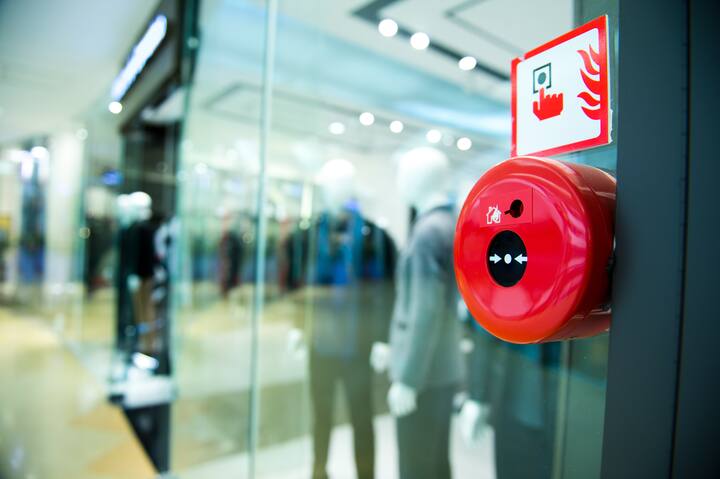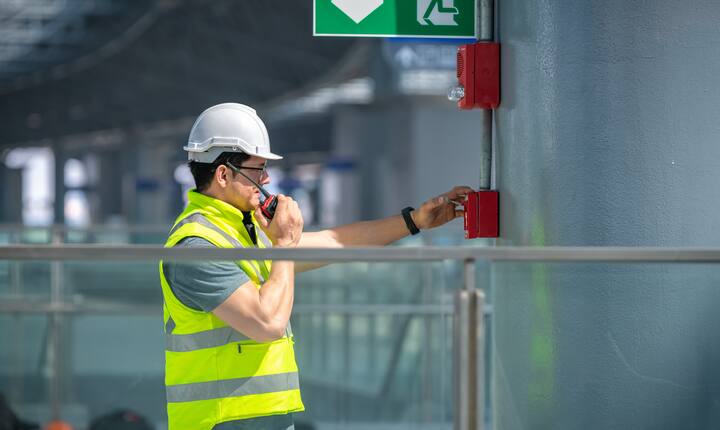
Siemens on Normec FSS
Up to speed on all the ins and outs
When you hear the name Siemens, you might immediately think of washing machines, dishwashers, and refrigerators. You're not alone. Yet, consumer products now make up only a small part of Siemens' operations. Much more significant is the role Siemens Nederland N.V. plays in the business market, providing products, systems, installations, and services in the field of electrical engineering and electronics. As Portfolio Manager Fire Safety within the Building Technologies division, Sjaak Taal knows everything there is to know about fire safety—and he’s happy to share that knowledge.
An experienced firefighter
Sjaak has no less than 32 years of hands-on experience in fire protection, including his time as a firefighter with The Hague Fire Department. Sjaak: “I know what it’s like to be in a fire—yes, even when it involves casualties.” Although he enjoyed his work at the time, Sjaak wanted more. He was involved in developing the concept of fire prevention at the fire department, which took shape in the 1990s in collaboration with major municipalities. “Back then, the fire brigade itself conducted inspections—there weren’t any external inspection bodies like we have today,” he says.
The inspectors are of a high caliber and know all the ins and outs of fire safety.
Fire prevention
“Municipalities had different views on fire safety. One required this, another required that. There was no nationwide standard like we now have in the Dutch Building Decree of 2012.” These differences included when to install detection systems, but also how fire safety and evacuation systems should operate. Siemens, with its international experience and knowledge gained from countless projects and standards committees, was already far ahead in terms of fire prevention and shared that expertise with fire prevention departments. That’s how Sjaak first came into contact with Siemens.
The importance of communication
Fast forward to today. The world has changed—including the world of inspection bodies. Partly due to the 2012 Building Decree, their role has become more prominent. This sometimes leads to tension. Sjaak: “A customer purchases a legally required fire safety system from Siemens, delivered under certification. But during inspection, issues may surface that prevent the system from receiving an inspection certificate—even if the cause lies in organizational or structural shortcomings. Customers often don’t understand this. I get that—and so does Normec FSS. That’s when you start a conversation. There’s room for that, and the trust is there.” Communication is the key—and Sjaak maintains frequent contact with Maurits van der Els from Normec FSS.
A balanced approach
Sjaak understands that an inspection body must comply with the rules and decisions of the Dutch Accreditation Council. “But,” he says, “you also deal with gray areas. Sometimes deviations are found during inspection that don’t affect fire safety in any way—and still the system fails the inspection.” He notes that Normec FSS trains its inspectors well on harmonization agreements and that they clearly explain how and why they interpret the rules as they do. That’s a big plus for the end user, who begins to see the added value of inspections.
Sjaak: “Customers often view inspections as just another cost. But I believe Normec FSS is capable of building broader support. Their inspectors are of a high caliber.” What Sjaak appreciates most is their broad knowledge of fire safety: “They know all the ins and outs and seek collaborative solutions when deviations are found. They’re also capable of making sound independent judgments on fire safety matters.” Not bad coming from a former firefighter.
More about Normec FSS

Normec FSS
's-Hertogenbosch Netherlands